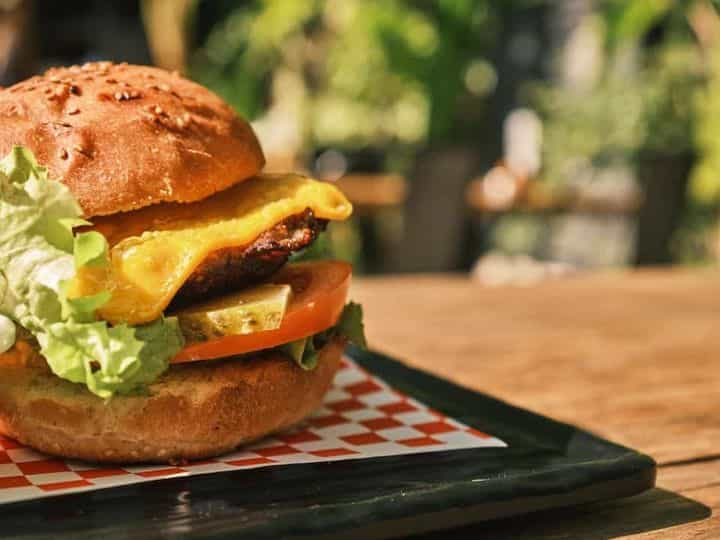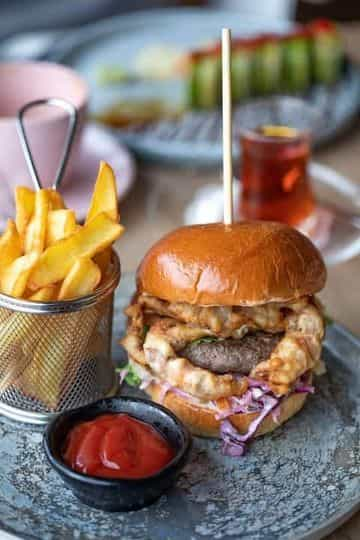The last time I went to Whole Foods, I counted at least twenty different options!There are oils made from walnuts, sesame seeds, grape seeds, soy, peanuts, coconuts…the list goes on.
And with so much conflicting information out there, it can be really hard not to mention time consuming) to figure out which oils are actually healthy, and what you should use each one for.
So we took the time to do the research for you, and filter through the results to get to the actual facts.
We narrowed that big list down to our top three healthy culinary oils:
- Olive oil
- Coconut oil
- Avocado oil
We’ll go over each of these three oils, and tell you why we love them, when and how you should use them, and what to avoid. But first, let’s get you up to speed on the facts about fats, and debunk some old myths so you can feel confident picking the right healthy oils for your diet.
Why Fats and Oils Get So Much Bad Press
Studies dating from the late 1940’s showed a correlation between a high-fat diet and cardiovascular disease and suggested a low-fat diet might prevent high-risk patients from developing heart disease.
By the 1960’s, that idea had evolved, and a low-fat diet was touted as beneficial for everyone, regardless of your heart disease risk factors.



And then in the 1980’s, researchers say “the low-fat approach became an overarching ideology, promoted by physicians, the federal government, the food industry, and the popular health media”.
Unfortunately for most of us, this really wasn’t sound health advice, since there was no clear evidence that a low-fat diet would lower your cardiovascular risk, or even help you lose weight.
That’s because dietary fat is actually necessary for weight loss and hormone balance, and cutting it out completely will absolutely contribute to weight gain.
Not to mention, cutting fat out of foods changes the taste–so carbs, sugars and other processed and artificial ingredients were added to make up for the flavor lost by removing fat.
Having a moderate amount of fat in your diet also helps you feel satiated longer, so eating a fat-free diet easily translates to feeling hungrier and eating more food than you normally would.
If you remember your high school science class, you know that correlation doesn’t always mean causation—and that’s definitely the case here.
Scientists now understand that you need a healthy amount of fat in your diet to feel full, lose weight, produce hormones, maintain a healthy immune system, and more important health functions.
In fact, not eating enough dietary fat and cholesterol will absolutely lead to hormonal imbalance, which is directly related to weight gain, fatigue, high blood pressure, and more serious health problems that don’t resolve even with a low-calorie diet and exercise.
What Science Got Right: Trans Fats
Trans Fats, which have been scientifically proven to:
- increase your risk of heart disease,
- raise your bad cholesterol,
- and cause weight gain—especially in the abdomen.
- Most trans fats come from highly processed hydrogenated and partially hydrogenated oils, which are usually made from canola, vegetable, and palm oils.
- Small amount of trans fats can be found in animal foods like chicken skin and butter, but it would be very difficult to eat enough of those foods for the trace amounts of trans fats to be a problem.
- The real culprits are greasy, fried fast foods and processed baked goods–like fries and Little Debbie cakes. That’s because hydrogenated and partially hydrogenated oils were designed as frying oil that can be filtered and reused repeatedly without breaking down, as well as to increase shelf life of packaged foods.
- But aside from those foods, which you already know are terrible for you…
- One of the biggest culprits that is usually hiding somewhere in your pantry, especially if you have kids, is peanut butter.
- If you buy one of the “natural” kinds, especially the weird kind that separates on you, with the oil at the top–you’re probably fine. But most of the regular kinds contain hydrogenated or partially hydrogenated oil.
- If you’re trying to be healthy, you’re probably staying away from fried and processed foods anyway, especially if you’re also trying to lose weight
- However, even foods that say “fat-free” or “trans fat-free” can still have trans fats, as long as they have less than 0.5 grams of trans fat per serving.
- To be sure you’re not getting hidden trans-fat in your diet, simply check ingredients lists for hydrogenated or partially hydrogenated oils. Problem solved!

